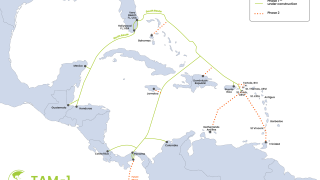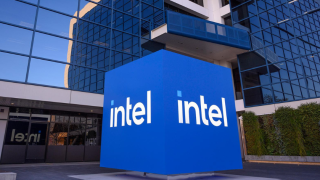|
|
Nigeria’s mobile market has enjoyed unprecedented growth since the launch of GSM services in 2001. In 2005, mobile subscribers passed the 10 million mark with net additions increasing dramatically each year until 2009 when they slowed down as a result of the global financial crisis. Despite this blip, by the end of 2011, subscriber numbers had reached 96 million with a population penetration of 60%.
With a lack of fixed-line infrastructure, mobile is the primary means of communication in the country. The sector is led by the local unit of pan-African carrier MTN, which had a market share of 43.8% in December 2011, followed by Globacom with 20.9%, Airtel Nigeria with 18.9% and Etisalat Nigeria with 11.3%.
Peter Lange, researcher at BuddeComm, says that corruption and poor infrastructure are the main challenges facing Nigeria’s telecoms market. “Telecoms infrastructure itself has greatly improved, with several international submarine fibre-optic cables now available, several national fibre backbone networks completed, 3G and 4G (LTE) mobile broadband services launched, but it’s the basic underlying infrastructure that’s still lacking, such as the power grid.”
Nigeria’s telecoms operators spend millions of dollars each month on diesel fuel to power the thousands of generators that keep the country’s telecoms networks running, which arguably makes network expansion more difficult.
Subscriber growth in the country has at times overtaken mobile operators’ abilities to keep up with the necessary infrastructure expansion, leading to poor quality of service (QoS). The nation’s regulator, the Nigerian Communications Commission (NCC), has issued numerous fines to operators found guilty of poor QoS.
In May, the country’s four main operators were issued fines to a combined total of $7.26 million, the bulk of which is to be picked up by MTN and Etisalat at $2.25 million each and the remainder by Airtel and Globacom at $1.69 million and $1.12 million respectively. The regulator had previously threatened to fine MTN, Globacom and Airtel and prevent further sale of SIM cards if their QoS did not improve.
In contrast to the mobile market, Nigeria’s broadband sector is severely underdeveloped with just over 200,000 customers in December 2011. Household penetration is thought to be below 1% with subscriber growth limited by a lack of affordable high-speed internet access and the country’s unreliable power supply.
The poor state of incumbent Nitel’s PSTN is also held responsible for the lack of broadband growth. As a result, the majority of internet users in Nigeria still connect using dial-up-modems in public places.
For the small percentage of customers who can afford a broadband subscription, services are offered via DSL, satellite, CDMA and WiMAX. Several operators offer DSL services via PSTN, but they are limited by the poor state of the network.
One of the ongoing sagas of the Nigerian telecoms market has been the fate of state-owned incumbent Nitel and its mobile arm M-Tel. Following a series of failed attempts at privatisation, the Nigerian government announced plans to liquidise the company earlier this year. The process has since been stalled, however, to allow time for an investigation to take place to determine the exact value of Nitel and M-Tel.
BuddeComm’s Lange believes that a buyer could still emerge at the last minute after the current valuation exercise has been completed, due to the overall attractiveness of the Nigerian market to foreign investors. However, he stresses that major investment would be required in both companies as their existing infrastructure is poor and they face strong competition in each of their respective market sectors.
International cable connectivity into Nigeria is already served by the SAT-3, Main One and GLO-1 cables. The launch of the ACE and WACS cables later this year looks set to help bring down the price of bandwidth and increase competition between subsea cable providers.
Funke Opeke, CEO at Main One Cable, says that the company has seen a tremendous growth in IP traffic out of west Africa. She believes that Main One has driven a price collapse in the market since launching two years ago, and has enjoyed increased demand due to what she describes as the company’s “price elasticity”.
Opeke expects WACS to largely serve MTN’s retail traffic as the company is the landing party for the cable in Nigeria and Ghana, but considers it unlikely that other consortium members will be able to operate in the country unless they are prepared to make local investment. “It is a tough market and we have proven we have what it takes to deliver consistently at competitive prices. The competition can only try to catch up with us,” she said.
|
|
|
|




